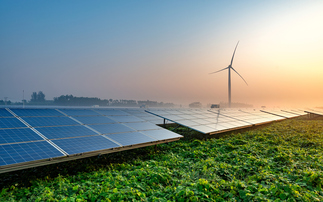The latest update on the government's fracking strategy somehow manages to add several more major weaknesses to Number 10's shale gas vision
The government this morning released its heavily trailed consultation on its proposed Shale Wealth Fund, sketching out how it plans to use a chunk of the tax revenues the predicted fracking boom will bring to benefit both local communities and the wider country.
Despite a flurry of reports yesterday about plans to provide households in fracking areas with up to £13,000 in cash payments - a ‘frackpot' if you will - the consultation, for that is what it is, offered relatively little detail on how this proposed scheme might work. In fact, the bulk of the consultation is focused on a wide range of different proposals for sharing the tax revenues from any fracking activity between regional programmes, community initiatives, and individual households.
And yet the latest update on the government's massively controversial fracking strategy, has little to say about the inherent flaws that continue to undermine plans to open up an entirely new fossil fuel industry at a time when the UK is committed to decarbonising its energy system, and somehow manages to add several more major weaknesses to Number 10's shale gas vision for good measure. Here are just five:
1. Where is the CCS strategy that could make a national fracking strategy viable?
As we've argued before, developing a new fossil fuel industry without simultaneously developing a carbon capture and storage (CCS) industry is akin to eating five doughnuts every day while hoping someone invents a miracle weight loss pill - it's reckless and irresponsible.
Both the Committee on Climate Change (CCC) and the shale gas industry's own taskforce have highlighted the importance of developing the CCS technology that would make the continued use of gas-fired power stations and industrial activities compatible with the UK's long term climate targets. But while Theresa May has made fracking one of her first priorities on making it to Number 10, the UK's CCS strategy is still stuck in the siding George Osborne shunted it into.
The consultation declares that "having access to clean, safe and secure supplies of natural gas for years to come is a key requirement if the UK is to successfully transition to a low-carbon economy". But it does not address the critical question: how many years to come?
A point will come, potentially as soon as the early 2030s, when gas power without CCS could put the UK on track to breaching its carbon targets. So why is there not more urgency in the government's approach to developing CCS?
It has been floated in the past that the economic and tax proceeds from a fracking boom could help finance the CCS technology that would give such a boom a long-term future. But the only mention of carbon storage in the consultation is a footnote on the potential to use some funds to support local natural capital projects, which translates to some admirable but marginal tree-planting. Meanwhile, talk of funding northern infrastructure projects touches on rail electrification and flood defences but has nothing to say about the carbon capture infrastructure that is so essential to the still embryonic fracking industry's future.
2. Are the safeguards on methane really strong enough?
Jane Ellison, Financial Secretary to the Treasury, today stressed that the government is backing the "safe development of shale gas", adding that it has made "safety and the environment our top priorities". But have ministers really done enough to address concerns about methane leaks and other local environmental impacts?
Crucially, it is not just environmental campaigners who are asking this question. The industry's own task force again called for more robust well monitoring and the CCC highlighted how tackling methane leaks was one of its top concerns. Those looking at the detail of the regulations keep spotting loopholes or weaknesses that could and should be addressed, and yet the government appears to be reluctant to return to the issue.
3. Where is the green heat strategy?
Point out that the development of a major shale gas industry is not compatible in the long term with the decarbonisation of the power sector and the retort comes back ‘what about heat? We still use gas for heat'. And indeed we do, but that is going to have to stop too in the not too distant future, if the UK is really going to largely decarbonise its economy during the first half of this century.
The CCC in its recent report on fracking's compatibility with the UK carbon targets made the crucial point "overall gas consumption must remain in line with UK carbon budgets". That means we will still need to eat into the available heat market for gas with alternative technologies. But where is the ambitious strategy to deliver these technologies and accompanying energy efficiency savings at sufficient scale?
The reality is that if shale gas is to be used as a bridging fuel the bridge needs to be very short and we need to have made much more progress than the government has to date in constructing the landing zone.









